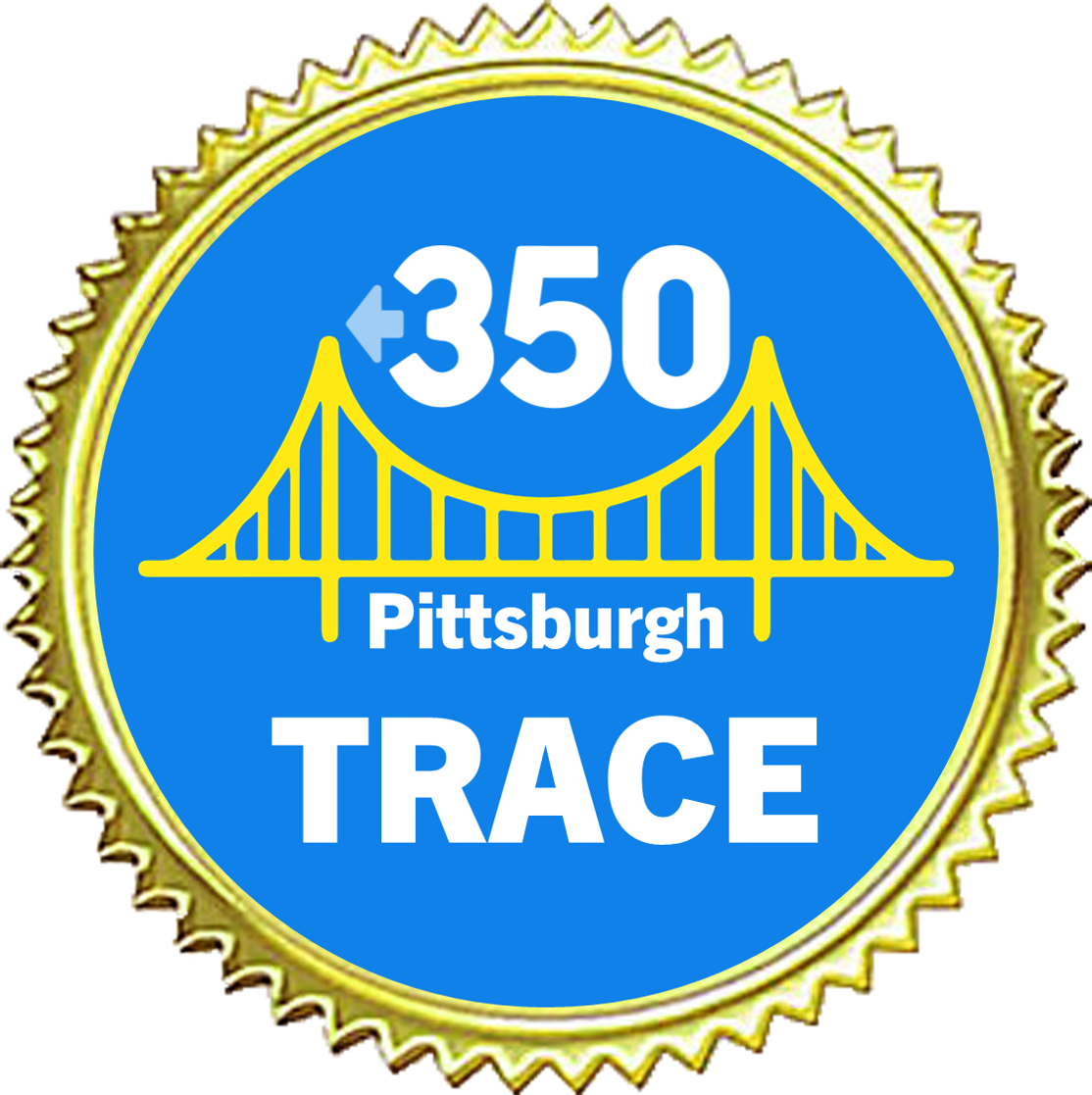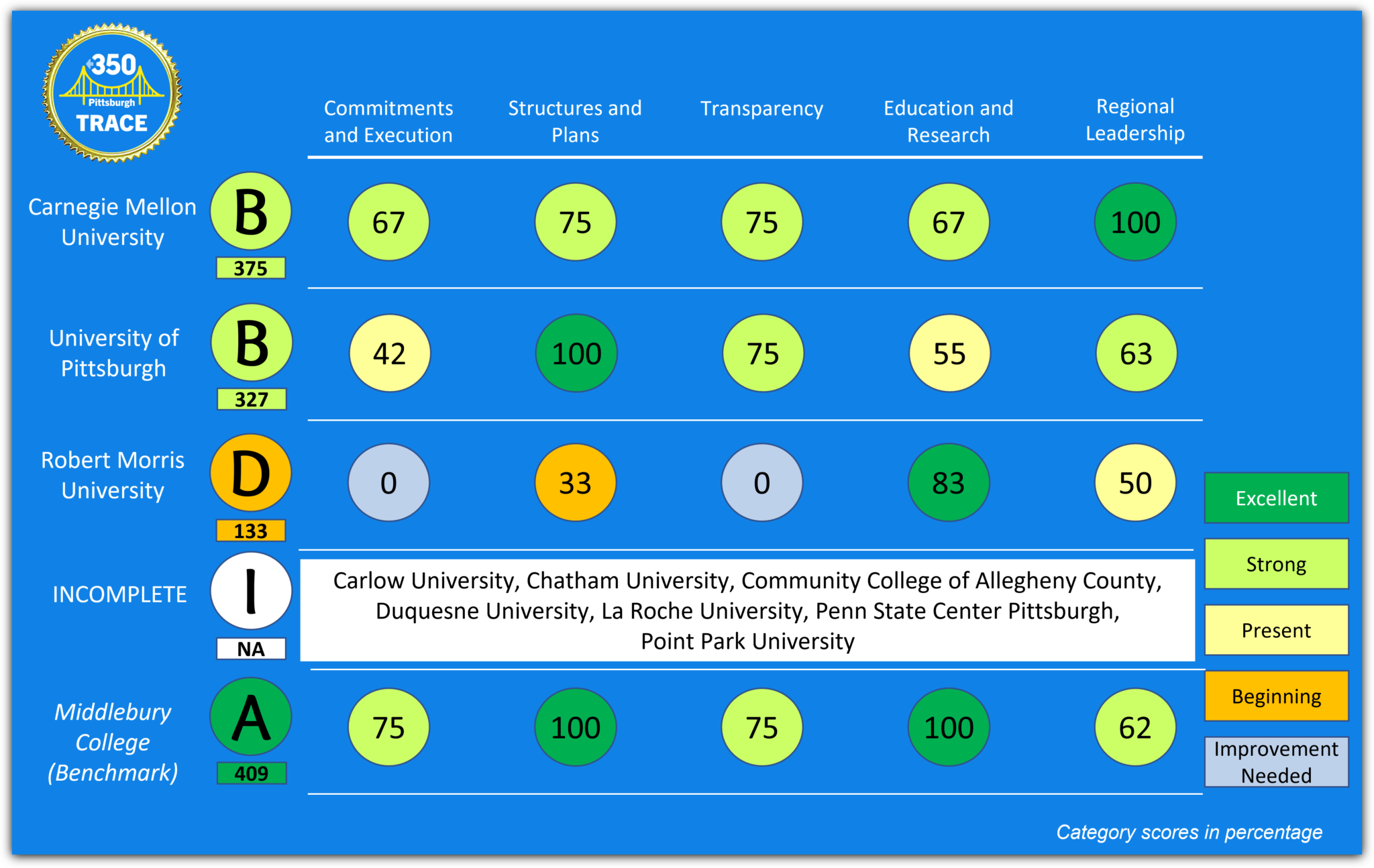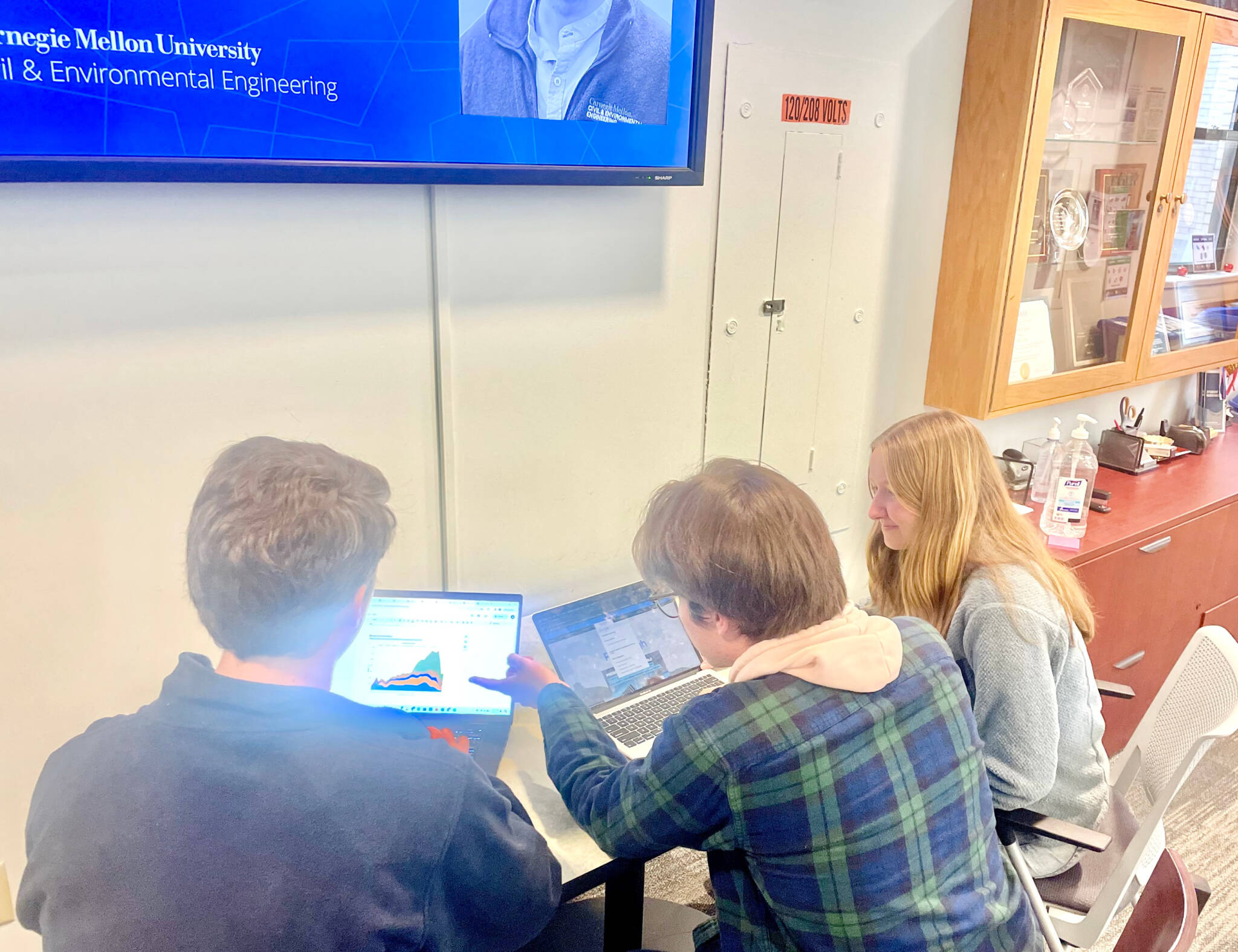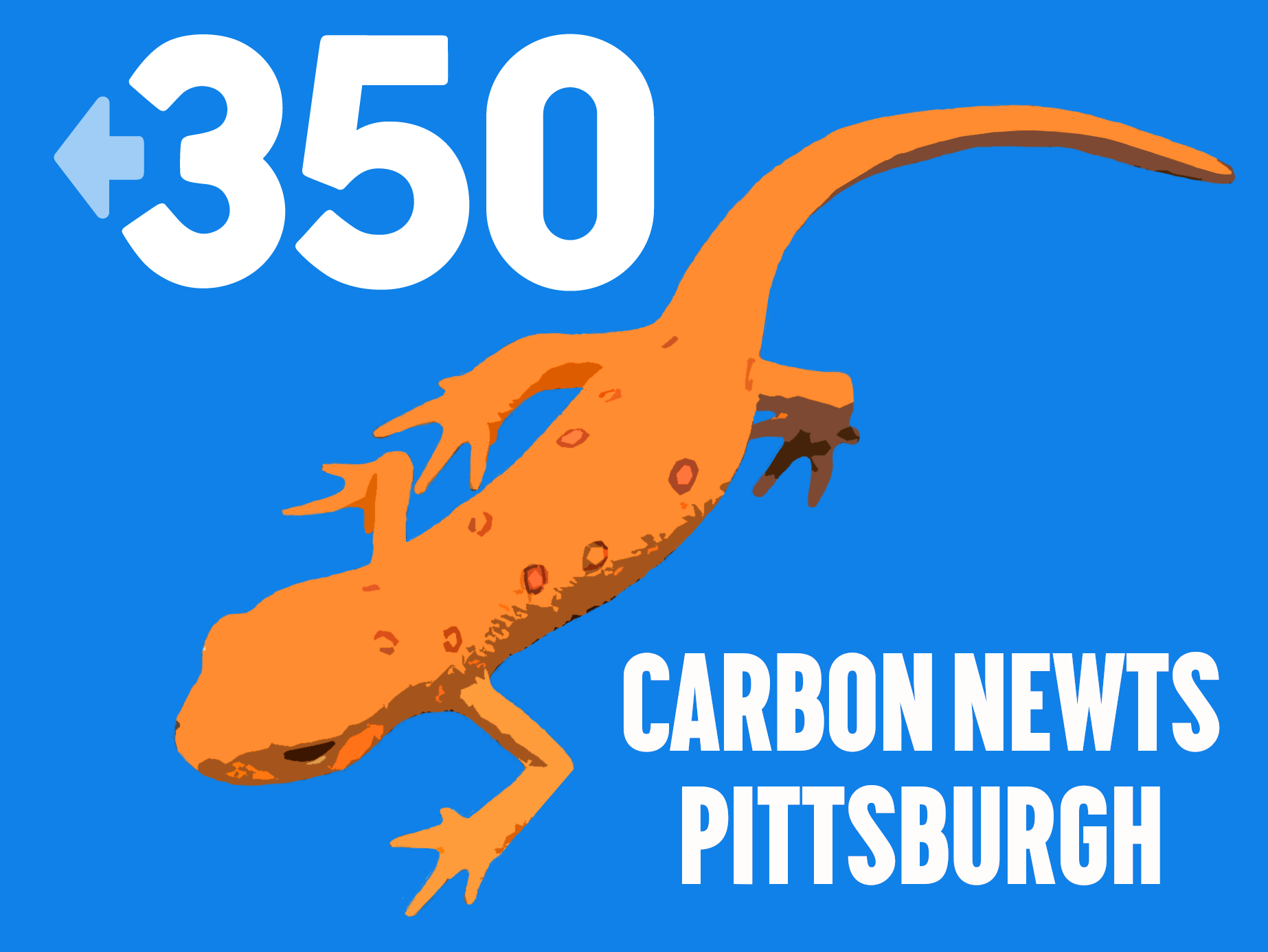350 Pittsburgh
Southwestern Pennsylvania’s large institutions have a clear responsibility to lead the
region’s journey to a carbon-free future. In particular, our region’s higher education
institutions are a cornerstone of regional economic transformation and are molding
the next generation of citizens.
350 Pittsburgh has created the Three Rivers Assessment of Carbon Emissions (TRACE)
scorecard to connect those schools’ own efforts towards carbon neutrality with the larger community.
Results from the 2024 TRACE Pilot
In 2023, 350 Pittsburgh created the TRACE scorecard and ran a pilot program to assess Carnegie Mellon University, Middlebury College, University of Pittsburgh, and Robert Morris University. The pilot report summarizing the results for each of the schools and overall learnings is available below as are the reports for the individual schools.
More About TRACE
Contact the 350 Pittsburgh TRACE Team
Email us at [email protected]
Follow us on
![]()
![]()
![]()



